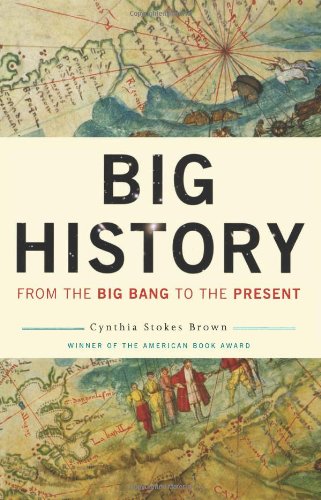 |
| Cynthia Stokes Brown |
By Kamran Nayeri, November 2009
Some scientists
persuasively have argued that by the advent of industrialization around 1800 we
have left the geological epoch, the Holocene, behind and entered the
Anthropocene epoch marked by human caused
global changes to the planet Earth. We can even make a more specific claim
that with the Anthropocene was inaugurated by the rise of fossil fuel-based industrialized
capitalism. Powered by cheap
fossil fuels, rapid technological change, and ever-expanding markets, the
capitalist mode of production has supported an exponential rise in human
population that on average lives longer and consumes more goods and services.
Urbanization and Proletarianizition in turn have supported expansion of
capitalist system. Thus, within a mere two hundred years or 8 generations we
are approaching or already have reached limits to growth. The present day combined crisis of
nature and society threatens the very fabric of life on Earth. The worse
economic crisis since the Great Depression is combined with global warming and
catastrophic climate change, forests and oceans are literary, and the rate of
species extinction is comparable to the last five extinction periods making
some biologists believe that the sixth
extinction already is underway.
While
the immediate enforcer of the current crisis is the world capitalist economy,
the very basis of this crisis was laid by the Agrarian Revolution
about 10,000 years ago, when some gatherer-hunter organized the first agrarian
settlements by systematically domesticating plants and animals and themselves,
giving rise to class societies. As
part of this process, the idea of human superiority, the anthropocentric
worldview, and human speciesism have become commonplace and the main prop of
the world culture. We have grown accustomed to the idea that our history began
with the “rise of civilization,” that is, class societies that emerged with the
Agricultural Revolution. In the process, we forgot that for some 95% of our
species’ life we lived successfully as gatherer-hunter societies and that
transition to agrarian settlement was not in any immediate sense an
improvement. We also forgot that
other mammals have lived for over 65 million years and life on Earth had begun
four billion years ago. And, of course, we forget that our universe emerged
13.7 billion year ago. Our
ignorance and forgetting is the root-cause of our present predicament.
Big History, a
relatively new multidisciplinary field, has emerged to reminds us of this
history, rendering a much needed paradigm-shift in our myopic worldview,
effectively taking on a subject matter traditionally left to philosophy: our
place in the world.
To learn about Big
History, I highly recommend Cynthia Stokes Brown’s very readable introduction
to a field that takes a terrain that is usually left to philosophers. The book
is divided into two parts. Part I deals with the emergence of the universe as
we know it, and of our own neighborhood in the space. It then reviews the
emergence of the living Earth, Homo sapiens, and gatherer-hunter societies. We
learn how species depend on their non-living surroundings, how Homo sapiens is
literally stardust, and how we are animals very much related to other living
beings around us, and that, in a profound sense, the Earth itself is a living
organism.
The much longer
Part II deals with the last 10,000 years reviewing world history proper. Stokes
Brown points to emerging patterns in human history as "civilization"
emerges and develops up to the present. Here she is much influenced by Fernand Braudel
and the Annales School of
historiography. The focus is on circulation of people, animals, goods, technologies,
and diseases.
I
tend to believe that this approach, while closer of Systems Theory,
hence more congruent with the general methodology of Big History, also creates
a number of problems when the author deals with the emergence of capitalism and
industrialization. The profit motive, very much in focus these days with the
current massive "financial" crisis, takes the backseat to
technologies and consumer behavior. Thus, solution to the current social and
environmental/ecological problems become obscure. By offering a final chapter
called "What Now? What Next?" Stokes Brown correctly turns our
attention to finding solutions to these problems. But somehow, the powerful
case she builds about our place in the universe is lost and attention is
focused on the narrow debate in the mainstream. This debate not only ignores
the capitalist foundation of society, it also forgets the very context of who
we are. Thus the logic of the story Stokes Brown has told, that the current
crisis originated in our alienation from nature and from ourselves and is
enforced daily by the capitalist social order as well as it central message
that to return to a society where we can live in harmony with nature (as gatherer-hunter
did to a great extent without having the benefit the state of our current
knowledge), is lost.
Still,
this is a beautiful book with an important story and an important message for
those who are looking beyond the headlines for a solution to the problems of
the humanity and Mother Earth.
Cynthia
Stokes Brown is a retired professor of education ar Dominican University of California.
She has written history and biography books, including the American Book
Award-winning Ready from Within: Septima Clark and the Civil Rights
Movement.
A briefer version of this review was published on amazon.com in November 2009.

No comments:
Post a Comment